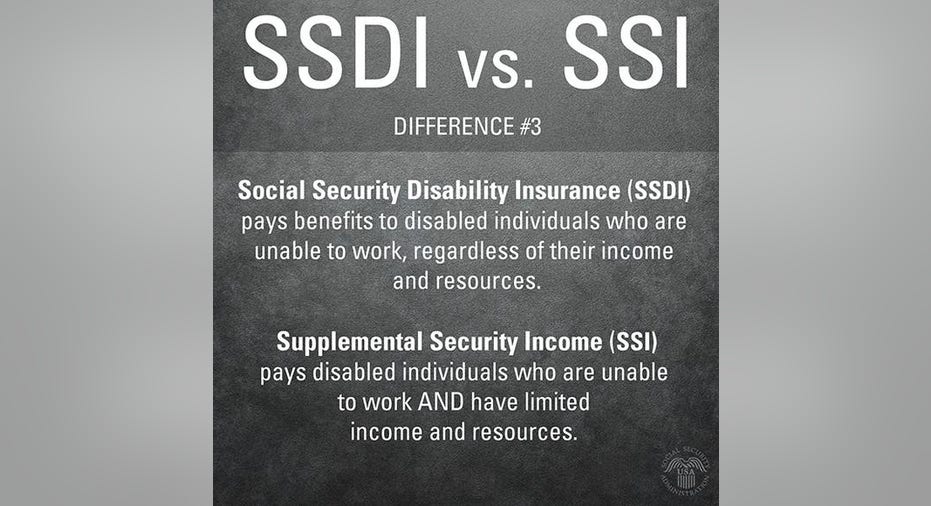Is Social Security Disability Taxable?

Most Americans pay Social Security payroll taxes out of their paychecks in order to fund the benefits that go to those who currently collect Social Security. In their eyes, that means that they've paid into the Social Security system, and so any benefits they earn from it should be free and clear of further taxation. Yet in a couple of situations, benefits that Social Security pays are indeed taxable for federal income tax purposes. One of those situations involves Social Security disability, and although many people end up not owing income tax on their disability benefits, some do. Below, we'll look at disability benefits both from the SSDI and the Supplemental Security Income programs to determine what, if any, of their benefits you might have to include in your taxable income.
Image source: SSA.
SSDI benefits: Sometimes taxable
Benefits under the Social Security Disability Insurance program can create federal tax liability in some cases. To determine whether you might have to include a portion of your benefits as taxable income on your federal return, you have to take into account both what you get from SSDI and any other income you have.
The starting point is to determine your income for purposes of determining taxation of benefits. To do so, take one-half of your disability benefits and then add your other income, including wages and salaries, investment income, business or farm profits, and other miscellaneous sources of income.
If that amount is less than $25,000 for single filers or $32,000 for joint filers, then you won't owe any tax on your benefits. However, if the amounts are greater than those thresholds, then you might have to include some of your benefits as taxable income. Specifically, for singles earning between $25,000 and $34,000, up to half of your benefits can get taxed at the federal level. Above $34,000, the maximum percentage of benefits you have to include in taxable income rises to 85%. The corresponding levels for joint filers are $32,000 to $44,000.
For the majority of people on receiving disability payments under SSDI, income levels are low enough that their benefits won't meet these thresholds and therefore won't be subject to taxation. However, a common situation for married couples involves a spouse earning enough to send the couple's total income above the threshold. That can make it essential for couples to consider the tax impact of disability benefits sooner rather than later. That way, you won't have to scurry to pay the additional tax and will avoid any potential penalties for not having properly accounted for the tax liability in a timely manner.
SSI benefits: Never taxable
Disability benefits are also available to some people under the Supplemental Security Income or SSI program. Eligibility for this program is based largely on financial need, with strict limitations set on how much you have in other financial resources that are available for you to use to support yourself. In addition, the benefit amount to which you are entitled can be reduced depending on how much income you earn and what the source of that income is.
The good news is that the IRS never forces you to include SSI payments in your taxable income. Those who receive them are generally in a position in which they wouldn't have any tax liability anyway, but the tax laws don't even make you consider the possibility of having to pay tax on what you get from Supplemental Security Income disability payments.
For those who are injured or ill and need disability benefits in order to make ends meet, the idea that they might have to lose some portion of their benefits to taxation is infuriating. However, if you don't follow the tax rules, you might be in for an even bigger surprise down the road from the IRS.
The article Is Social Security Disability Taxable? originally appeared on Fool.com.
Try any of our Foolish newsletter services free for 30 days. We Fools may not all hold the same opinions, but we all believe that considering a diverse range of insights makes us better investors. The Motley Fool has a disclosure policy.
Copyright 1995 - 2016 The Motley Fool, LLC. All rights reserved. The Motley Fool has a disclosure policy.



















